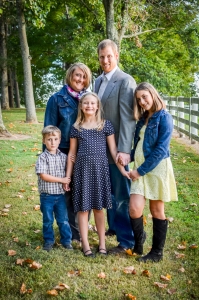This morning I saw a cartoon in my Facebook newsfeed that showed a pastor in front of the church behind the pulpit saying, “There’s been a complaint from a few of the members that the sermons are too intellectual. The following adult members are invited up front to join the children’s sermon…”
At first I chuckled because…haha…but then I stopped and thought about what the cartoon was implying.
First and foremost, it indicated that somehow a children’s sermon would be less intellectual than the sermon offered to the adults.
Second, it made is seem like an adults experiencing something intended to reach children would not be challenged in their faith.
And finally, it seemed to imply that an adult would be insulted to be “lumped in” with the kids.
Ugh.
If you know me at all, even a little bit, you know that my chuckle quickly disappeared, because…ugh. I don’t think any of these things are true nor should be they be perpetuated within our faith communities. Both theologically and socially, these underlying assumptions about the differences between adults and children can actually undermine the church and lead to segregated faith communities where little to no interaction takes place between generations.
So let’s start with the basics.
Of course we can all recognize there are differences between adults and children. Physically, emotionally, developmentally, and in a myriad of other ways, they are different. They have different needs based on these different stages of development. They have different abilities, both physically and cognitively. They have different likes and dislikes, frameworks through which they view the world.
And therefore, yes, age-appropriate ministry within the church is necessary and valuable.

However, in spite of these differences, there are important spiritual principles that are common to both. Theology, for instance, is something that doesn’t change based on age. The way it is presented might change, but the theology itself should not change. Which means, even in a sermon intended to reach children, the theological content should be such that an adult would learn from it and gain insight from it as well. Phil Vischer, creator of Veggie Tales and Buck Denver, shared this response to someone who said that theology was too deep for children:
Kids can learn more than we think. Adults can learn less than we would hope. We consistently underestimate what kids are capable of learning and overestimate what adults will learn. Kids still ask questions – grown ups stop asking questions.
Could you explain it to a 3rd grader? If you can’t disciple a 3rd grader, you can’t disciple anyone.
Faith, the foundation upon which we call ourselves children of God, is not only common to the whole community, but actually exemplified in children (according to Christ). To assume that an adult cannot learn with and from children because adults are at a deeper place in their faith is to lose one of the most precious things about our faith, namely, that it is best experienced and expressed through the life of a child. Just ask Jesus. He repeatedly pointed to children and told his disciples and followers to have faith like them because to them belonged the kingdom of God (Mt. 18:1-6, Mk. 10:13-16, Luke 18:16, 17).
It is not an insult for an adult to be called to learn with and from children; it is what Christ has told us to do.
What if we re-envisioned the whole sermon? What if the pastor of the church didn’t see himself as the pastor of the adults only but also to the youth and children? What if the sermon was a time where we learned together, truly together, because the goal wouldn’t be one group being fed while the other was ignored or set aside or one group being entertained with simple stories and surface values while the other group sits hungry for discipleship and theology? Can that even be done?
I think it can. I think it would mean we all have to bend a little. We’d all have to see one another as more important than ourselves.
Kids would have to listen to some things that developmentally they couldn’t understand and relate to.
Adults would have to humble themselves to a place where they could learn with and from children even if they think they are beyond that.
There would need to be grace given, one to the other, and discipleship offered as we grow together.
But I think it could be done and I think it could be a healthy place for the church to explore helping generations grow together. Simply having a discussion together, as a larger faith community and within our own church, may yield more insight and ideas that we could come up with on our own. We can know this for sure, “Since God’s point of communication with all of us is the Word, it’s clear that the Bible must be for children too.“
This story from the late 1800s of a pastor and his own interactions with his daughter in church touches me each time I read it. I think there is much to be gleaned from this personal testimony for all of us, but especially those of us who minister within the church.
“Papa, are you going to say anything to-day that I can understand? ‘ asked a little girl of her father— a Massachusetts pastor — as he was setting out for church on a Sabbath morning. This tender appeal touched the loving father’s heart, and he could not answer his daughter nay; he could not say to his child that she must sit in penance through all the long service with never a word designed for her instruction and cheer.
So, as he preached, he said, ‘And now, children, I will say something to you about this.” At once the face of every child in that audience brightened. Sleepy little ones started up ; tired ones took fresh heart.
Looking first at the minister, then at each other, again back to him, they were all eagerness for his message, as though now there was something else for them than to nod and yawn and ache un-cared for; and although the pastor’s following sentences to them were few and simple, doubtless many felt as did the child who had pleaded for this attention when, on her return at noon, she said contentedly, ‘ Papa, I understood all that you said this morning.’
Dear children! Who wouldn’t do as much as this for them in every sermon? — they are gratified so easily.”
(taken from The Sunday School, its origins, mission, method, and auxilliaries” written by H.C. Trumbull and available free on Google Books.)
Want some practical tips from a working preacher? Check out this blog post!
For more information about
- Kids in Worship
- Determining which Type of Family Ministry model works best for your church
- Discipleship in Intergenerational community
- Encouraging the continued conversation through Practical Discipleship at Home
- Seminars, Workshops, Coaching
Check out to ReFocus Ministry or “like” our Facebook page. Join our conversation at theReFocus Family and Intergen Ministry group on Facebook.
About the author
 Christina Embree is wife to Pastor Luke, mom to three wonderful kids, and family minister at Nicholasville UMC. She is passionate about seeing churches partnering with families to encourage faith formation at home and equipping parents to disciple their kids in the faith. Currently studying Family, Youth and Children’s Ministry at Wesley Seminary, she also blogs at www.refocusministry.org and is a contributing blogger at D6 Family, Seedbed, and ChildrensMinistryBlog.com
Christina Embree is wife to Pastor Luke, mom to three wonderful kids, and family minister at Nicholasville UMC. She is passionate about seeing churches partnering with families to encourage faith formation at home and equipping parents to disciple their kids in the faith. Currently studying Family, Youth and Children’s Ministry at Wesley Seminary, she also blogs at www.refocusministry.org and is a contributing blogger at D6 Family, Seedbed, and ChildrensMinistryBlog.com


3 Comments